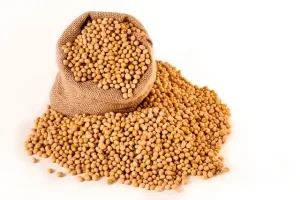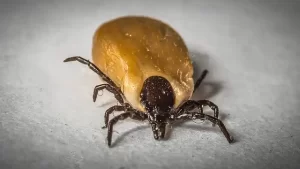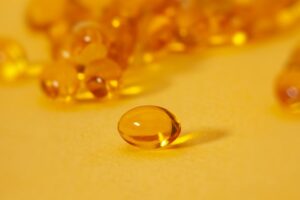Japan COVID-19 mRNA vaccine DS-5670 started Phase I/II trial
- Engineered Soybeans with Pig Protein: A Promising Alternative or Pandora’s Dish?
- Severe Fever with Thrombocytopenia Syndrome (SFTS): A Tick-Borne Threat with High Mortality
- Why Isolating Bananas Extends Their Shelf Life?
- This common vitamin benefits the brain and prevents cognitive decline
- New report reveals Nestlé adding sugar to infant formula sold in poor countries
- Did Cloud Seeding Unleash a Deluge in Dubai?
Japan COVID-19 mRNA vaccine DS-5670 started Phase I/II trial
Japan COVID-19 mRNA vaccine DS-5670 started Phase I/II trial. Daiichi Sankyo mRNA vaccine DS-5670 Phase I/II clinical trial in Japan begins Vaccination.
Recently, Daiichi Sankyo announced that the Phase I/II clinical trial of the novel coronavirus pneumonia (COVID-19) mRNA vaccine (DS-5670) in Japan has begun to vaccinate subjects.
mRNA is a nucleic acid molecule that carries genetic information. The mRNA vaccine introduces genetic information into the body, so that cells in the body produce corresponding antigens, thereby inducing the body to produce neutralizing antibodies and stimulating T cell responses, and fight the virus through the dual mechanisms of humoral and cellular immunity. In the face of a major outbreak, compared with traditional vaccines, mRNA vaccine synthesis and production processes are relatively convenient, with strong immunogenicity, no additional adjuvants necessary for traditional vaccines, and good safety.

At present, the mRNA vaccine Comiranty (BNT162b2) from Pfizer/BioNTech and the mRNA vaccine mRNA-1273 from Moderna have obtained emergency use authorization/temporary authorization/conditional approval in many countries around the world.
Just recently, Moderna announced that its new-generation vaccine mRNA-1283 has been immunized in the first phase of clinical trials for the first batch of subjects. This new-generation vaccine has the potential to remain stable and convenient under refrigerator storage conditions. Large-scale distribution and inoculation.
DS-5670 is developed using Daiichi Sankyo’s proprietary new nucleic acid delivery technology. Daiichi Sankyo is collaborating with the Institute of Medical Science of the University of Tokyo to lead research and development through the “New Coronavirus Disease Vaccine Development (Second Round)” (company initiated) project, which is promoted by the Japan Medical Research and Development Agency. The results of pre-clinical studies show that the good safety and effectiveness of DS-5670 have been confirmed.

In this phase 1/2 clinical trial currently being carried out in Japan, a total of 152 healthy adults (including the elderly) were enrolled for the purpose of evaluating the safety and immunogenicity of the vaccine, thereby estimating the recommended dose of DS-5670. The safety endpoints are adverse events and adverse reactions, and the immunogenicity endpoints are neutralizing antibody titer and IgG titer.
As a Japanese pharmaceutical company that specializes in developing vaccines, Daiichi Sankyo Pharmaceuticals is committed to helping restore social safety and security by eradicating COVID-19 early, and hopes to develop a COVID-19 vaccine made in Japan and provide it as soon as possible. Sufficient amount of DS-5670 to achieve this goal.
At present, the field of COVID-19 vaccine research and development is developing at an unprecedented scale and speed. According to information on the World Health Organization (WHO) website, as of February 18, 2021, at least seven different vaccines have been promoted in multiple countries on three platforms. Vulnerable groups in all countries are the highest priority for vaccination.
At the same time, as of March 16, 2021, more than 200 vaccine candidates are under development, of which 82 vaccines are in clinical development and 182 vaccines are in preclinical development.

Of the 82 vaccines in the clinical development stage, most (71 vaccines) mainly adopt the following 5 technical routes: protein subunits (PS, n=27, 33%), viral vectors (non-replicating, VVnr, n= 12.15%), inactivated virus (IV, n=11, 13%), RNA (n=10, 12%). The remaining vaccines (11) adopt technical routes: virus vectors (replicating type, VVr, n=4,5%), virus-like particles (VLP, n=3,4%), VVr+antigen presenting cells (VVr+APC) , N=2, 2%), live attenuated virus (LAV, n=1, 1%), VVnr+APC (n=1, 1%).
Among the 82 vaccines, 12 (15%) were single-dose immunizations, 50 were 2-dose immunizations (61%), 1 was 3-dose immunizations (1%), and 19 (23%) were not confirmed or no data.
(source:internet, reference only)
Disclaimer of medicaltrend.org



